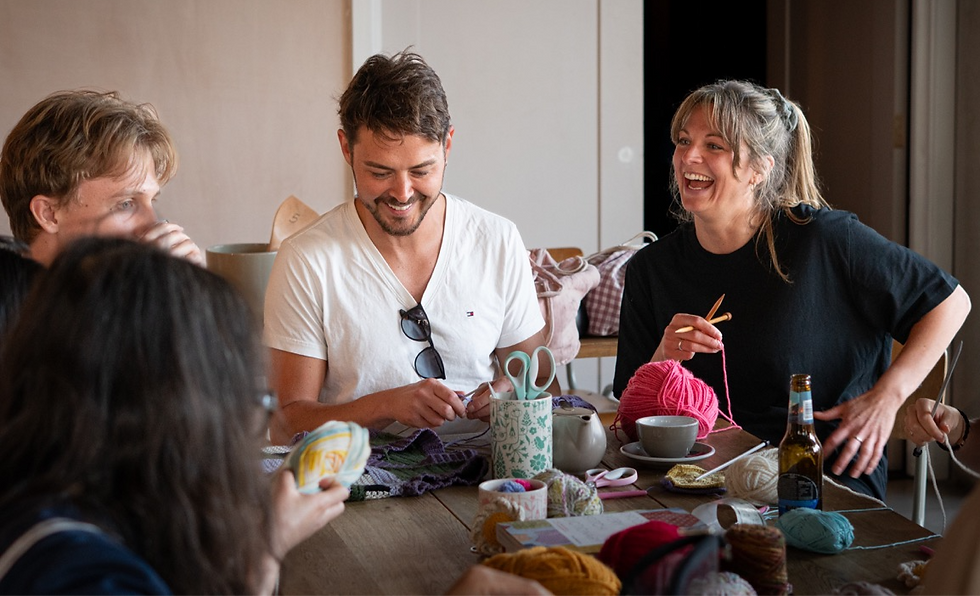I broke my own digital rule.
- Laura Hughes

- Jul 10, 2025
- 3 min read
This week, I broke my own digital relationship rules. And it had consequences.
Recently, I’ve been dealing with something big in my own life. Against my better judgement, I thought I could alter the algorithm for my business Instagram page (I don’t have a personal one) so that I would only see positive stuff about this ‘big thing’.
I was wrong.

The digital rule I broke was to look at Instagram first thing in the morning – spurred on by a misguided need for some sort of reassurance on the topic (which you, and my own logical brain knows, you do not find on social media).
Within 30 seconds, the platform had slapped me with three different posts that showed three incredibly negative, scary stories and images. My brain, in its sleepy just-woken-up state, was sponge-like and vulnerable – meaning that whilst later in the day I may have been more resilient, I was actually deeply affected for a good few hours following what I saw online.
My whole mood had been altered by things I saw on a screen. It took me hours – and a long walk in nature, to shake off the feeling it gave me in the pit of my stomach. The feeling of fear – the exact opposite of what I needed.
Had I not looked on Instagram that morning, I probably would have relied on my own logic and life experience to rationalise my thoughts. I would have used my own internal, trusted dialogue to figure it all out. If I couldn’t figure it out myself, I would have looked something up in a book or spoken to a friend. All of these things would have prevented me the gut punch of being confronted by something external that I really did not need to see or consume. Something that I then had to work really hard to get out of my head.
Even with careful curation, even without clickbait, Instagram served me content designed to hook, not to help. That’s what it does, because that’s what it’s built to do.
There’s a lesson in this; one I clearly needed to relearn.
I set digital boundaries for a reason. Not to be rigid or anti-tech, but because the cost of breaking them is real. Especially first thing in the morning, when our minds are vulnerable.
So if you're reading this and you've felt it too - that gut-punch moment from something you didn’t mean to see - know that you're not alone. But also know you can protect your mind.
Start your day with your own voice, not someone else's algorithm.
The Science Bit: Why It Matters What You Do When You Wake Up
When you first wake up, your brain is in a highly impressionable state. You’re transitioning from theta (dreamlike) brainwaves into alpha and beta states - the zones where your conscious thought starts to kick in.
This means:
Your subconscious is wide open to input
You’re literally setting the tone for what your brain will crave and focus on for the rest of the day
Your dopamine system - the part of the brain that regulates motivation and reward - is being primed by whatever you feed it first
So if the first thing you do is scroll, you’re training your brain to chase novelty, compare, react, and seek external validation. You’re basically saying: “This is the kind of stimulation I want to keep chasing all day.”
What I Do
I leave my phone in another room overnight. When I wake up I purposefully give myself at least 30 minutes to start my day in the real world and not in the digital space.
I shower, get a coffee, breathe – take the dog for a walk and get out in nature.
The Unexpected Benefits
More creative thinking - because I’m not filling my mind with noise before my own ideas have a chance to surface
Better focus - I’m not hooked into dopamine spikes
Less anxiety - I’m not absorbing everyone else’s moods and feelings before I’ve started my own day in my own body
Final Thought
You don’t have to overhaul your entire routine. Just try this: Keep your phone out of reach for the first 20 minutes of your day.
Laura x





Comments